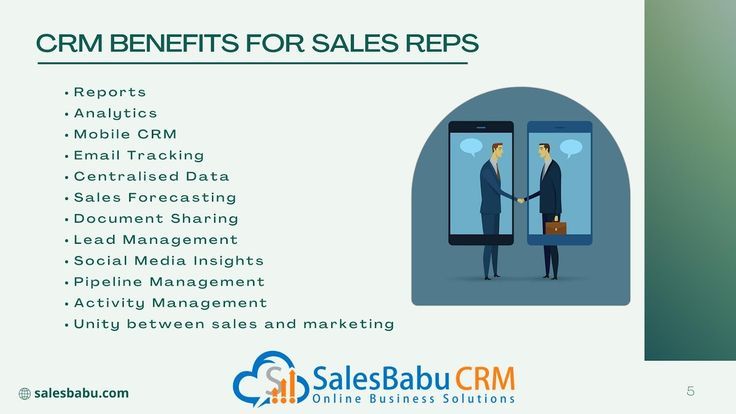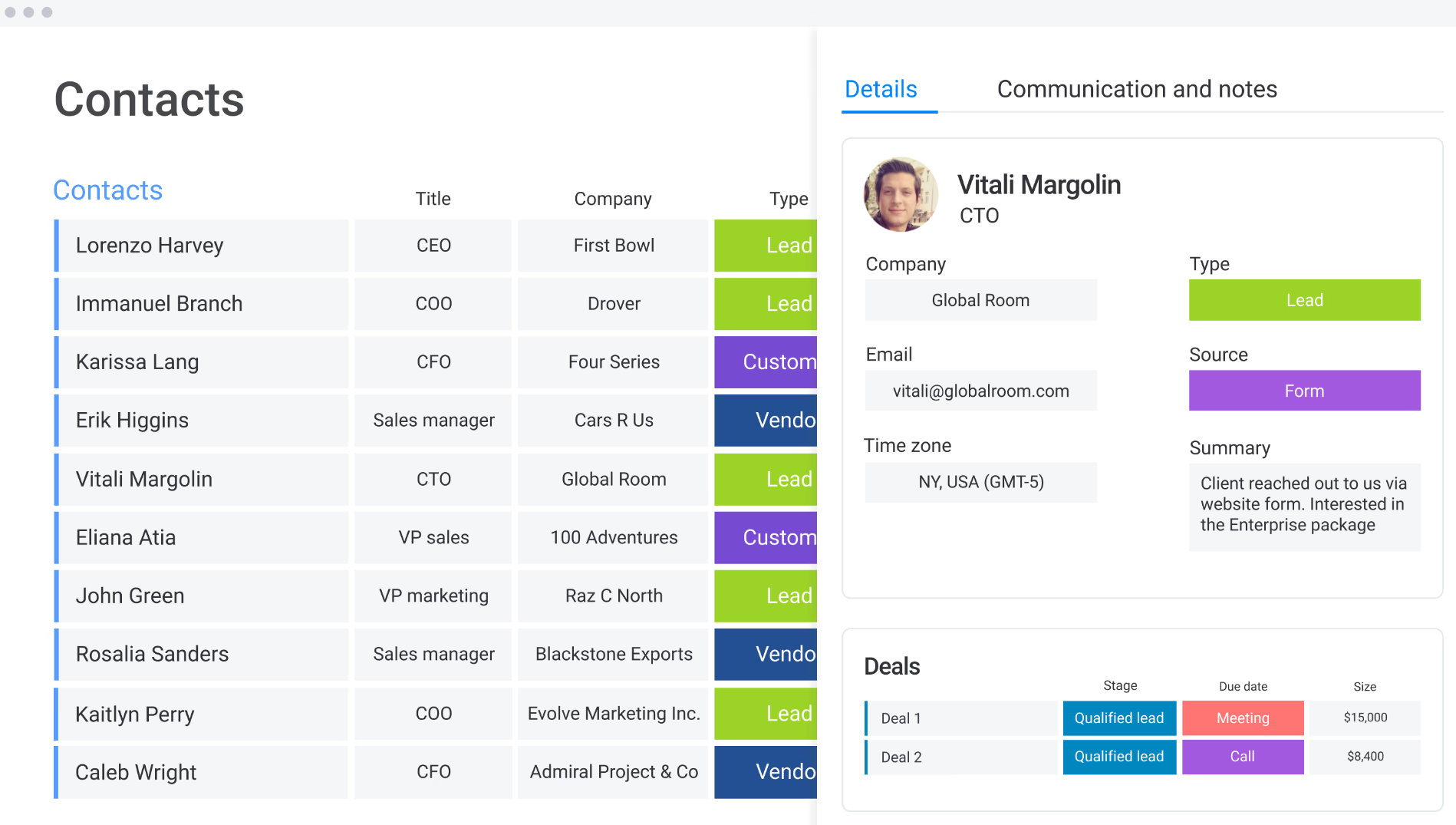For independent sales reps, a robust CRM system is not just a tool; it’s an indispensable weapon in their arsenal. As the market landscape evolves, the need for tailored CRM solutions has become paramount, and this article delves into the world of best CRM for independent sales reps, exploring their key features, benefits, and value proposition.
With a CRM tailored to your specific needs, you can streamline your sales process, nurture customer relationships, and drive your sales performance to new heights. Get ready to discover the CRM solutions that will empower you to outpace your competition and achieve unprecedented success.
Overview of Best CRM for Independent Sales Reps
Customer Relationship Management (CRM) systems designed for independent sales representatives empower these professionals with tools to manage their sales pipelines, track customer interactions, and close deals more efficiently. These CRMs are tailored to the unique needs of solo sales reps, providing features that help them stay organized, nurture relationships, and grow their businesses.
Key Benefits of Using a CRM for Solo Sales Professionals
- Centralized data management:CRMs provide a central repository for all customer-related data, including contact information, communication history, and sales activities. This eliminates the need for scattered spreadsheets and manual data entry, saving time and reducing errors.
- Improved customer relationship management:CRMs enable sales reps to track customer interactions, preferences, and purchase history. This information helps reps personalize their approach, build stronger relationships, and provide tailored recommendations.
- Enhanced sales pipeline visibility:CRMs provide a clear view of the sales pipeline, allowing reps to monitor the progress of deals, identify potential bottlenecks, and adjust their strategies accordingly.
- Increased productivity:CRMs automate many tasks, such as lead capture, email scheduling, and appointment reminders. This frees up sales reps to focus on more strategic activities that drive revenue.
Challenges of Using a CRM for Solo Sales Professionals
- Cost:CRM systems can be expensive, especially for independent sales reps with limited budgets.
- Learning curve:Implementing and using a CRM can require a learning curve, which can take time and effort.
- Data security:Independent sales reps need to ensure that their CRM provider meets industry standards for data security to protect customer information.
Key Features and Functionality
Independent sales reps require a CRM that provides essential features tailored to their unique needs. These features include lead management, opportunity tracking, contact management, and reporting capabilities. When selecting a CRM, it’s crucial to consider these key features and compare different systems to determine the best fit.
Popular CRM systems like Salesforce, HubSpot, and Zoho offer a comprehensive range of features. Salesforce is known for its robust lead management and opportunity tracking capabilities, while HubSpot excels in marketing automation and customer relationship management. Zoho provides a cost-effective solution with a wide range of features, including sales, marketing, and customer support.
Lead Management
Effective lead management is vital for independent sales reps. A CRM should enable them to capture, qualify, and nurture leads efficiently. Key features to look for include lead scoring, lead segmentation, and automated lead distribution.
- Lead scoring helps prioritize leads based on their potential value.
- Lead segmentation allows reps to group leads based on specific criteria, such as industry or job title.
- Automated lead distribution ensures that leads are assigned to the right reps based on their expertise or location.
Opportunity Tracking, Best crm for independent sales reps
Tracking sales opportunities is essential for managing the sales pipeline. A CRM should provide features that enable reps to track the progress of opportunities, identify potential roadblocks, and forecast revenue accurately.
- Opportunity stages allow reps to visualize the progression of each opportunity through different stages, such as qualified, proposal submitted, or closed won.
- Revenue forecasting helps reps estimate the potential revenue from active opportunities, enabling them to make informed decisions.
- Pipeline management provides a clear overview of the sales pipeline, helping reps identify bottlenecks and prioritize their efforts.
Benefits and Value Proposition
For independent sales reps, leveraging a CRM system unlocks a plethora of benefits that can significantly enhance their productivity, customer engagement, and overall sales performance.
Here’s a breakdown of the key benefits:
Increased Productivity
- Streamlined lead management: CRMs help sales reps organize and track leads efficiently, eliminating the need for manual data entry and reducing time spent on administrative tasks.
- Automated tasks: CRM systems can automate repetitive tasks such as sending follow-up emails, scheduling appointments, and generating reports, freeing up valuable time for sales reps to focus on building relationships and closing deals.
- Improved communication: CRMs facilitate seamless communication between sales reps and customers, providing a centralized platform for tracking interactions, sharing updates, and managing communication history.
Pricing and Value for Money
Independent sales reps must carefully evaluate the pricing models and subscription plans of different CRM systems to find the best fit for their budget and needs. It’s essential to compare the cost-benefit ratio and potential return on investment (ROI) to determine which CRM offers the most value for money.
Subscription Plans and Pricing
CRM systems typically offer a range of subscription plans with varying features and pricing options. Monthly or annual subscriptions are common, and some providers may offer discounts for longer-term commitments. It’s important to consider the number of users, storage space, and features included in each plan to determine the most cost-effective option.
Cost-Benefit Analysis
When evaluating the cost-benefit ratio of a CRM system, independent sales reps should consider the potential benefits it can provide, such as:
- Improved efficiency and productivity
- Enhanced customer relationship management
- Increased sales opportunities
- Reduced administrative costs
By comparing the potential benefits to the cost of the CRM system, sales reps can determine if the investment is worthwhile and likely to generate a positive ROI.
User Interface and Usability

User interface (UI) and usability play a pivotal role in the efficiency and adoption of CRM systems by independent sales reps. Intuitive and user-friendly interfaces enable reps to navigate and use the system effortlessly, maximizing their productivity.
Leading CRM systems for independent sales reps offer clean and uncluttered interfaces, with well-organized menus and customizable dashboards. These dashboards provide reps with a comprehensive overview of their sales pipeline, key metrics, and upcoming tasks.
Guided Tour
Let’s take a guided tour of how independent sales reps can navigate and use a typical CRM system effectively:
- Dashboard:The dashboard serves as the central hub, providing an instant snapshot of key sales metrics, such as pipeline value, conversion rates, and revenue generated. Reps can also access recent activities, upcoming appointments, and important notifications.
- Contacts:The contacts module allows reps to manage their customer relationships effectively. They can easily add, edit, and view contact information, including name, email, phone number, and social media profiles. Advanced CRM systems also offer features like contact segmentation, lead scoring, and automated email marketing.
- Opportunities:The opportunities module enables reps to track their sales pipeline and manage potential deals. They can create and track opportunities through different stages, such as qualified lead, proposal sent, and closed won/lost. CRM systems provide insights into the progress of each opportunity, helping reps identify potential roadblocks and close deals faster.
- Activities:The activities module helps reps stay organized and manage their daily tasks. They can schedule appointments, make phone calls, send emails, and track other activities related to their sales process. CRM systems also offer calendar integration, allowing reps to sync their schedules with their CRM.
- Reports:The reports module provides valuable insights into sales performance and trends. Reps can generate customizable reports to analyze key metrics, such as sales by product, region, or individual rep. These reports help identify areas for improvement and make data-driven decisions.
Integration and Compatibility

Integration and compatibility with other business tools and applications are crucial for independent sales reps to maximize their productivity and efficiency. By seamlessly connecting their CRM with other essential software, sales reps can streamline their workflows, automate tasks, and gain a comprehensive view of their sales activities and customer interactions.
One of the most important integrations for sales reps is with email marketing platforms. By integrating their CRM with an email marketing tool, sales reps can easily segment their customer lists, create targeted email campaigns, and track the results of their email marketing efforts.
This integration allows sales reps to nurture their leads, build relationships with customers, and close more deals.
Another essential integration for sales reps is with accounting software. By connecting their CRM with accounting software, sales reps can track their sales performance, manage their expenses, and generate invoices and reports. This integration helps sales reps stay on top of their finances and make informed decisions about their sales strategies.
Finally, integrating their CRM with social media platforms can be valuable for sales reps. By connecting their CRM with social media, sales reps can monitor their brand’s reputation, engage with potential customers, and generate leads. This integration helps sales reps build relationships with customers and prospects, and stay up-to-date on the latest industry trends.
Mobile Accessibility and Offline Functionality
Independent sales reps spend a significant amount of time outside the office, meeting with clients, attending industry events, and traveling to different locations. Having a mobile CRM that is accessible on smartphones and tablets is crucial for them to stay connected and productive on the go.
Mobile CRM apps allow sales reps to access customer data, track their sales pipeline, manage their schedules, and communicate with clients from anywhere with an internet connection.Offline functionality is another important feature for sales reps who may not always have access to a reliable internet connection.
With offline functionality, sales reps can continue to access and update their CRM data even when they are offline. This ensures that they can stay up-to-date on their sales activities and make informed decisions, even when they are on the road.
Benefits of Mobile Accessibility and Offline Functionality
* Increased productivity: Mobile CRM apps allow sales reps to work from anywhere, at any time. This increased flexibility can lead to a significant boost in productivity.
Improved customer service
Sales reps can access customer data and respond to inquiries in real-time, even when they are not in the office. This can lead to improved customer satisfaction and loyalty.
Better decision-making
Sales reps can access real-time data and analytics on their mobile devices. This information can help them make better decisions about their sales strategies and tactics.
Reduced costs
Mobile CRM apps can help sales reps reduce their expenses by eliminating the need for paper-based processes and reducing the amount of time they spend on administrative tasks.
Support and Resources: Best Crm For Independent Sales Reps
Independent sales reps rely heavily on their CRM system for managing their sales process. It is crucial for them to have access to reliable customer support and resources to ensure smooth operations and maximize their productivity.CRM vendors typically offer a range of support options, including phone, email, live chat, and online documentation.
Training and onboarding programs are often provided to help sales reps get started with the CRM and leverage its features effectively. Additionally, vendors may offer ongoing assistance through webinars, forums, and user communities.
Documentation and Knowledge Base
Comprehensive documentation and a well-maintained knowledge base are essential resources for independent sales reps. These materials should provide clear instructions, tutorials, and troubleshooting guides to help users navigate the CRM and resolve any issues they may encounter. Easy access to documentation and a searchable knowledge base empowers sales reps to find the information they need quickly and efficiently.
End of Discussion

In conclusion, the best CRM for independent sales reps is not merely a software; it’s a strategic investment that can transform your sales operations. By leveraging the power of these tailored CRM solutions, you can gain a competitive edge, optimize your workflow, and unlock your full sales potential.
Embrace the digital transformation and watch your sales soar to new heights.
Top FAQs
What are the key benefits of using a CRM for independent sales reps?
CRMs offer a myriad of benefits for independent sales reps, including streamlined sales processes, improved customer relationships, enhanced sales performance, increased productivity, and data-driven insights.
How do I choose the best CRM for my needs as an independent sales rep?
Consider your specific sales process, team size, budget, and integration needs. Research different CRM systems, compare their features and pricing, and opt for the one that aligns best with your requirements.
What are some affordable CRM options for independent sales reps?
Several affordable CRM options are available for independent sales reps, such as HubSpot CRM, Zoho CRM, and Salesforce Essentials. These solutions offer a range of features at a cost-effective price point.